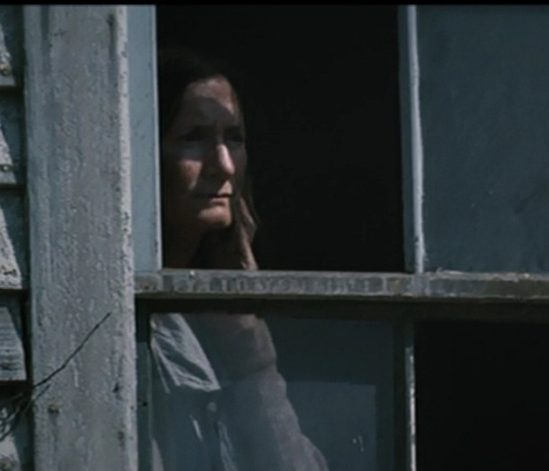5 Tips to Help You Write a Memoir about Hard Things
Today’s guest post is by Patricia Grayhall.
The box lay unopened in various closets for forty years. Then, while downsizing, I took out the journals and letters and began reading. The memories and feelings flooded back.
As I relived my personal journey in the late 1960s and ’70s—an illegal abortion, coming out as a lesbian, a woman training to become a doctor, and none approved by society—I realized that my experience has relevance beyond the personal, especially now.
But writing a memoir is as challenging as it is rewarding. Here are five lessons I learned along the way that I hope will help you when you have to write about hard things:
- It takes courage …
when you write about life events that have affected you deeply and may be associated with shame. A writer must face fear of humiliation and exposure. This fear was my greatest obstacle in writing about hard things and choosing to share it with the world.
However, this process of revealing our true humanity and struggle rather than the polished version of ourselves we often present on social media allows us to really connect with others.
It is my hope that readers will learn from my mistakes and my poor choices but also my resilience. This hope kept me writing.
- You control the narrative …
so even when painful things happen in your life, there is satisfaction in looking back and seeing patterns. While experiences appear random and chaotic in real time, upon reflection you begin to see a line of continuity in seemingly unrelated events. Though the themes in your narrative are often universal (love, friendship, ambition, for example), you experienced them in a certain way, and only you can tell your unique story.
In shaping the story from my memories and journals, I was able to create a cohesive narrative, develop new insights, and make meaning out of the formative years of my early adulthood. I came to have a greater compassion for my younger self and realized that I had done the best I could with the resources and understanding I had at the time. The shame I felt when recalling some of my behavior faded.
- You must feel it again …
because who knows what you might find when you go delving into the past? Perhaps you’ll get some answers to questions that were unresolved or too painful to contemplate at the time.
The past isn’t dead. It lives on inside us and influences us whether we are aware of it or not. It shapes our present responses and who we are now.
While writing my memoir, I felt once again the passion and pain of my late teens and twenties. Sometimes it was all too much, and I had to put it aside and take a walk. However, it was necessary to feel those feelings again to write a narrative that could connect with and evoke similar feelings in you, the reader. Feelings that could be tempered with understanding and meaning.
Having experienced that slice of life in my memoir on a visceral level, I hope readers will appreciate that the drive to love, to belong, to achieve, and to live a life of meaning is universal to queer and straight people alike.
- It takes conviction.
Writing into the void takes conviction that one day your words will impact others. Brenè Brown said, “One day you will tell your story of how you overcame what you went through, and it will be someone else’s survival guide.”
Based in the 1970s, my memoir is a unique and personal story that documents the perseverance and resilience of an ambitious woman who faced struggles not only as a woman but also as a lesbian desiring a stable love relationship as well as a career as a doctor. It is still relevant today as the gains we’ve made in overcoming misogyny and homophobia can easily be reversed as witnessed by the recent Supreme Court decision to reverse women’s right to control our own bodies. It is even possible that the right to marry who you love may be next.
- It takes perseverance.
I had written and published many medical articles but never a personal story. The craft of writing, scene building, dialogue, voice, setting, sensual detail, and bodily sensations of emotion were all new skills to me. I don’t know any writer who just sits down and creates a perfect narrative on the first try. I wrote dozens of unsatisfactory drafts and killed numerous darlings.
In the end, I came to love the process, even writing about hard things. Learning the craft of writing and discovering the arc of my coming-of-age life experience was deeply satisfying.
Writing your story when it’s a journey full of hard things can be difficult. But always remember that things that are difficult can be well worth doing and can serve as inspiration and encouragement for others.
 Patricia Grayhall is a medical doctor and author of Making the Rounds: Defying Norms in Love and Medicine. She lives with the love of her life on an island in the Pacific Northwest where she enjoys other people’s dogs, the occasional Orca and black bear, hiking, and wine with friends. For further information visit Patricia at her website.
Patricia Grayhall is a medical doctor and author of Making the Rounds: Defying Norms in Love and Medicine. She lives with the love of her life on an island in the Pacific Northwest where she enjoys other people’s dogs, the occasional Orca and black bear, hiking, and wine with friends. For further information visit Patricia at her website.
Featured Photo by Moritz Mentges on Unsplash












What a great article about the power of memoir, both for the author and the reader. I have made sense of my life reading memoir, and of my experiences by writing it. Your story will have great impact.